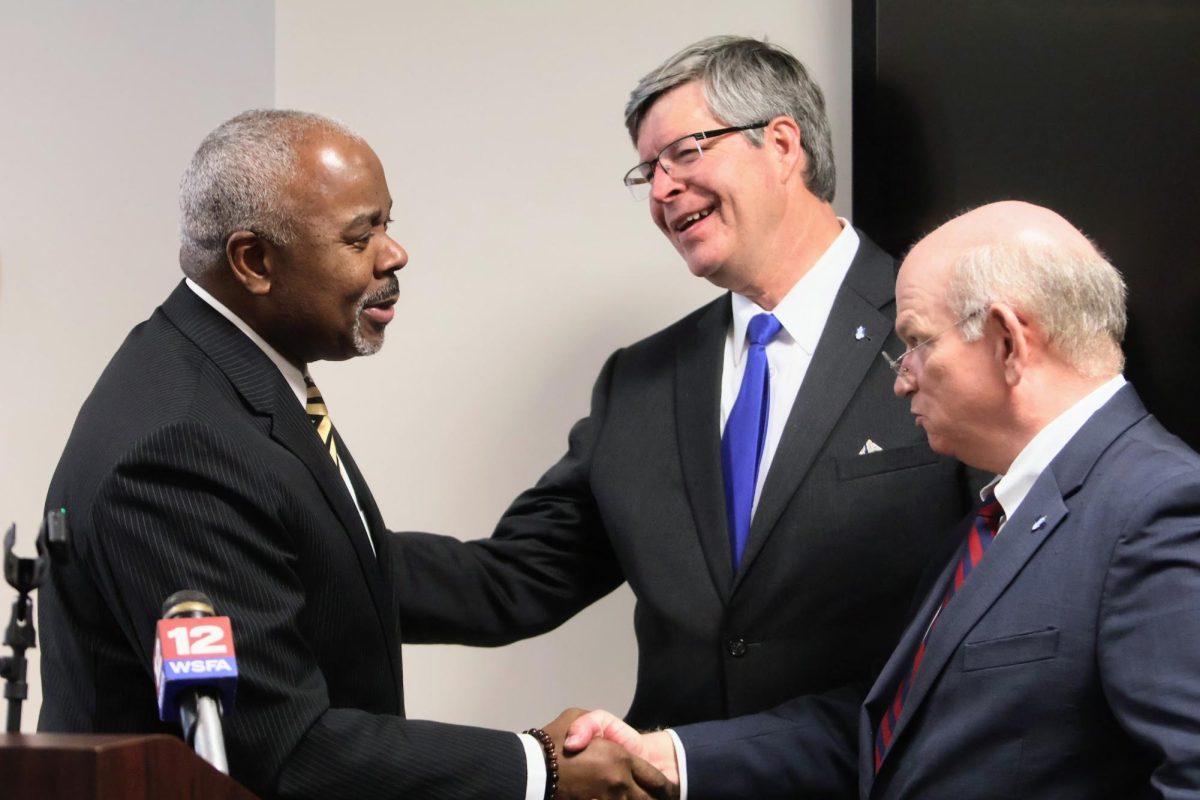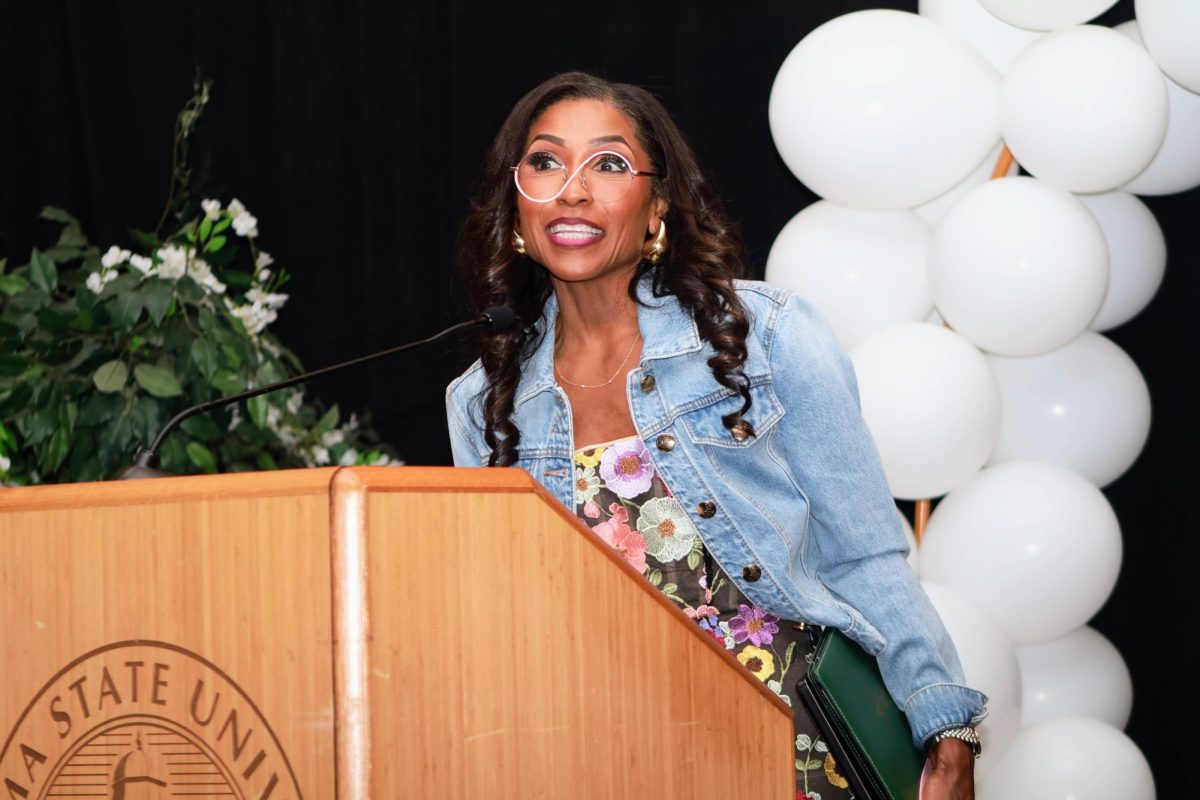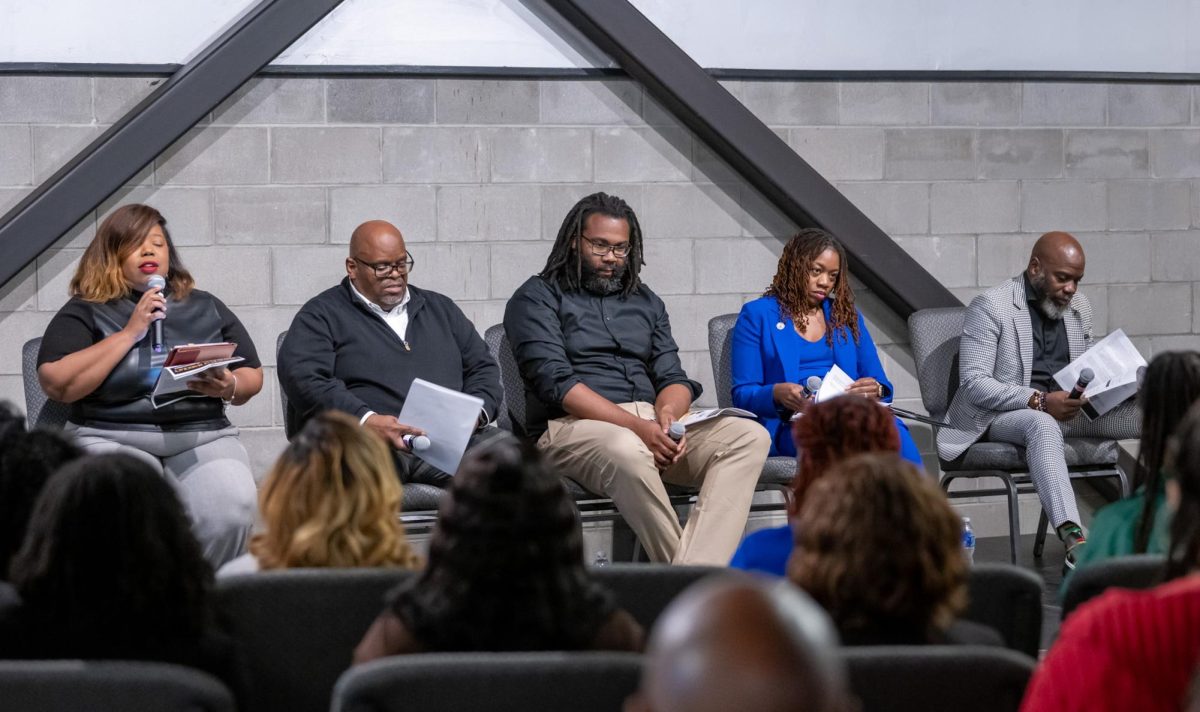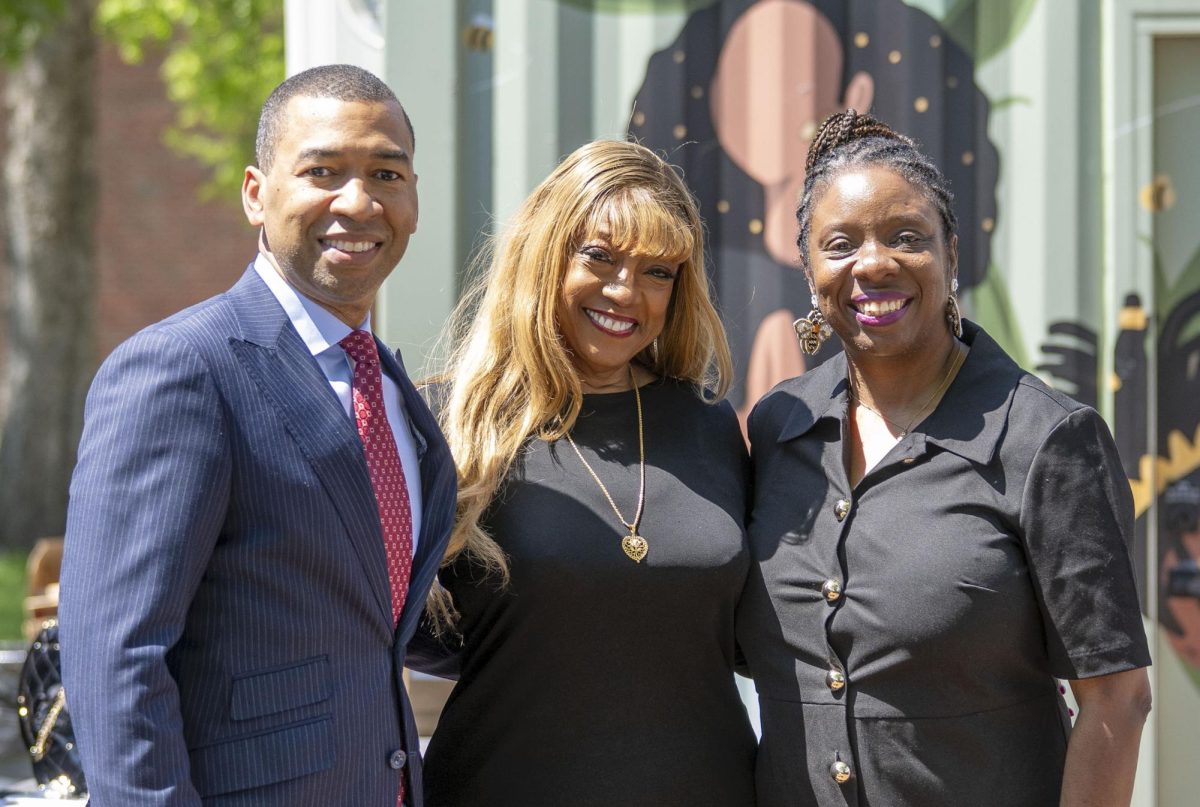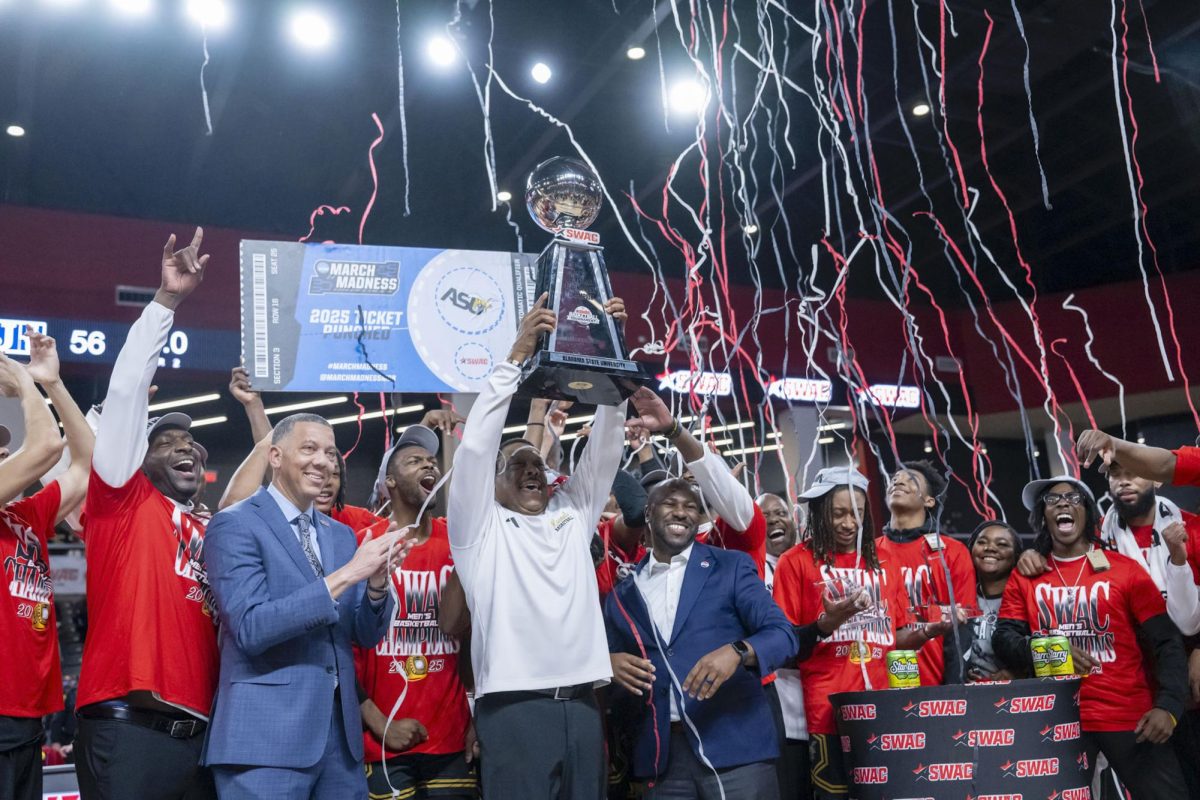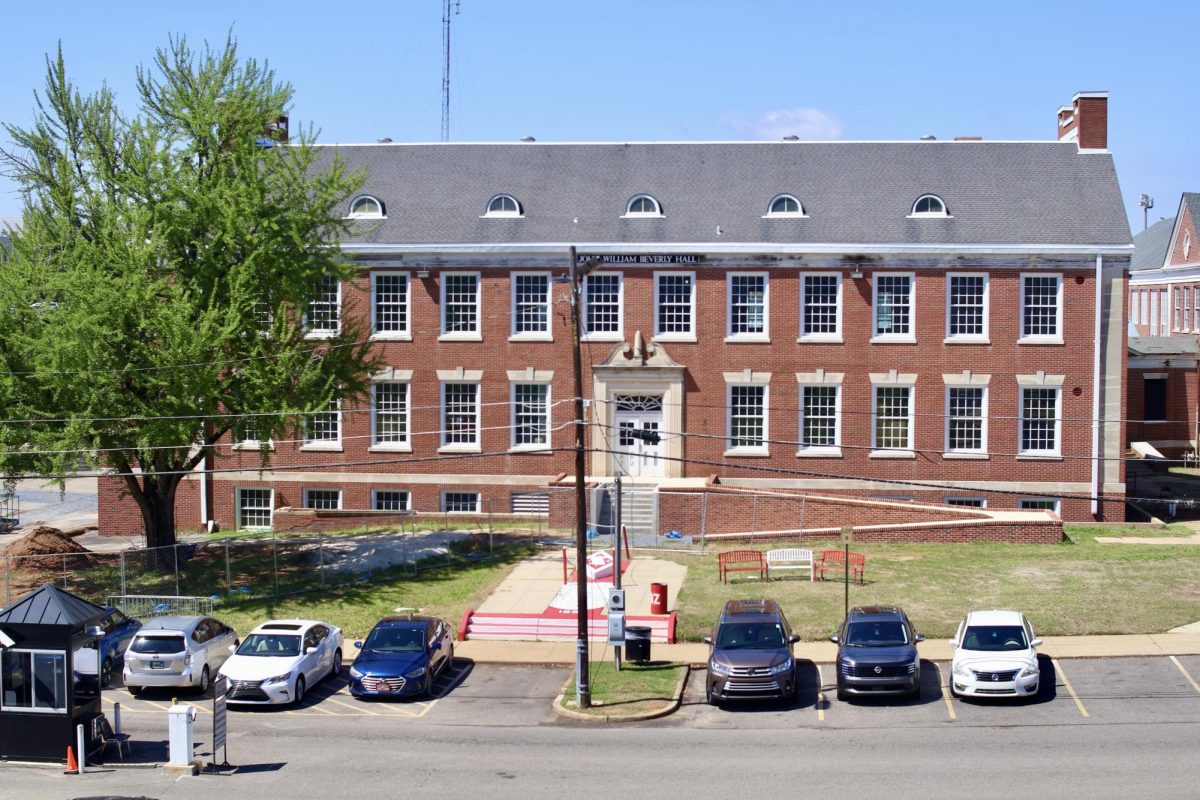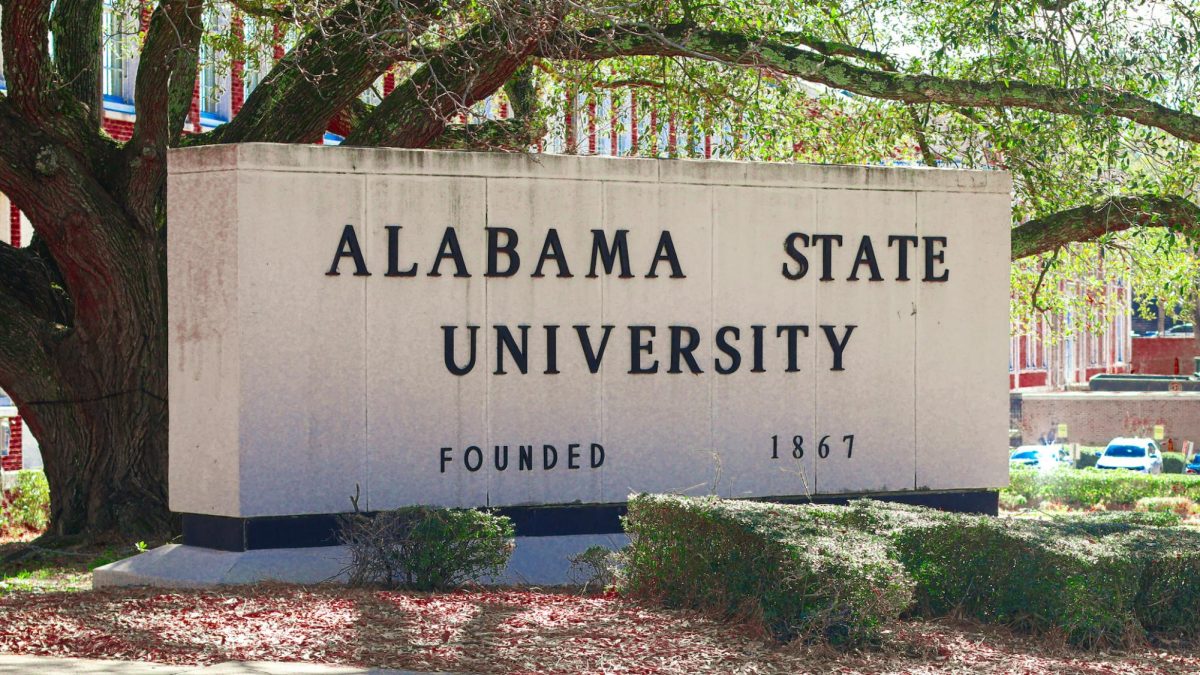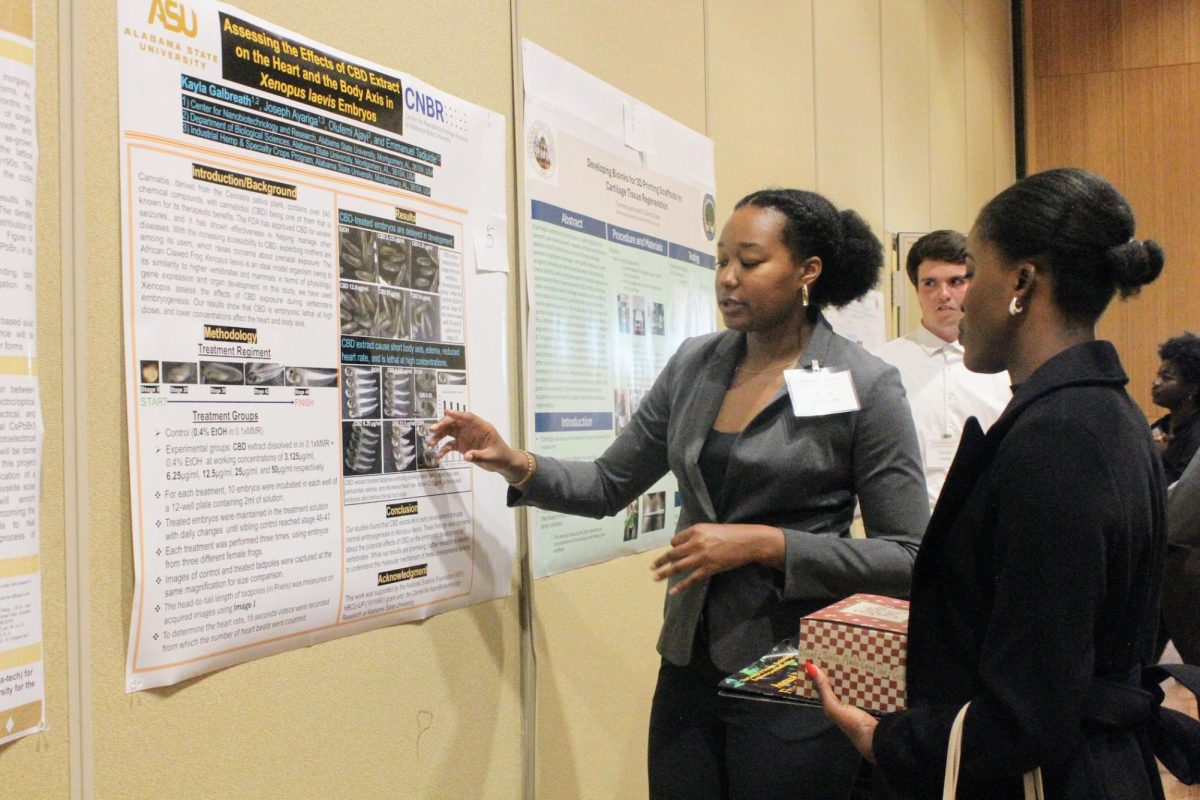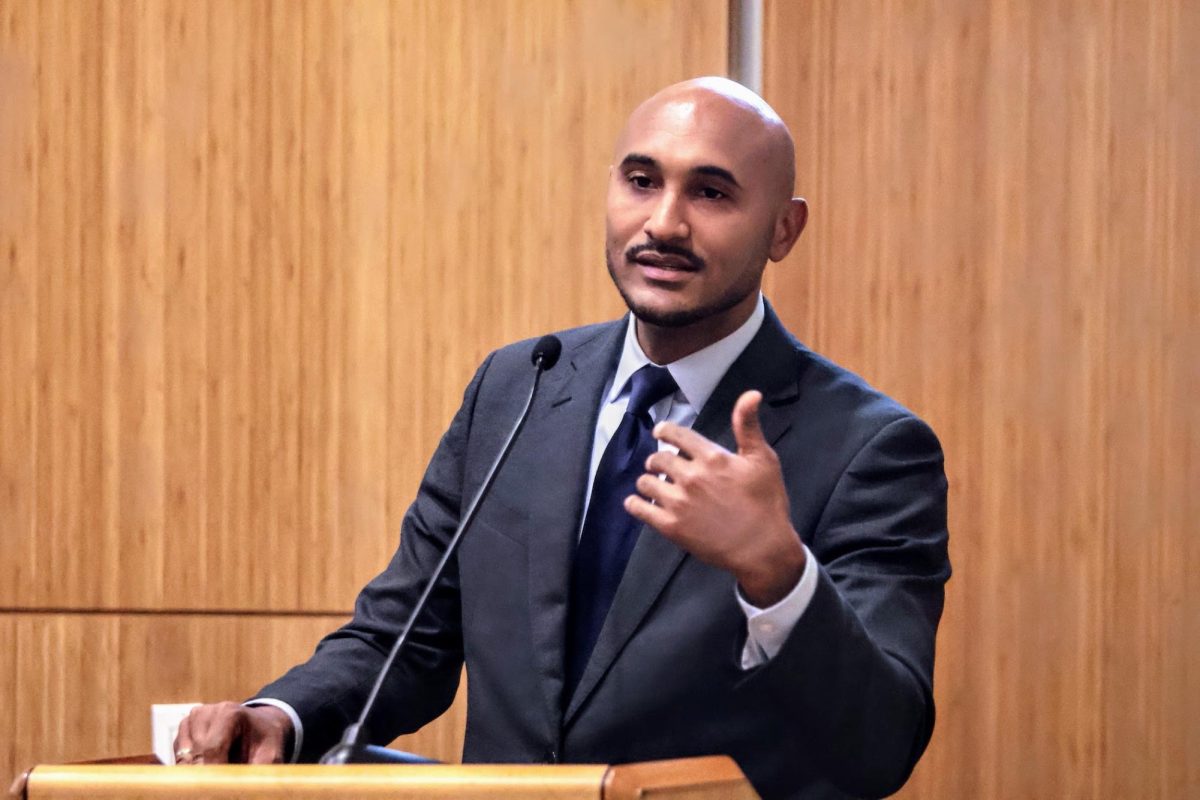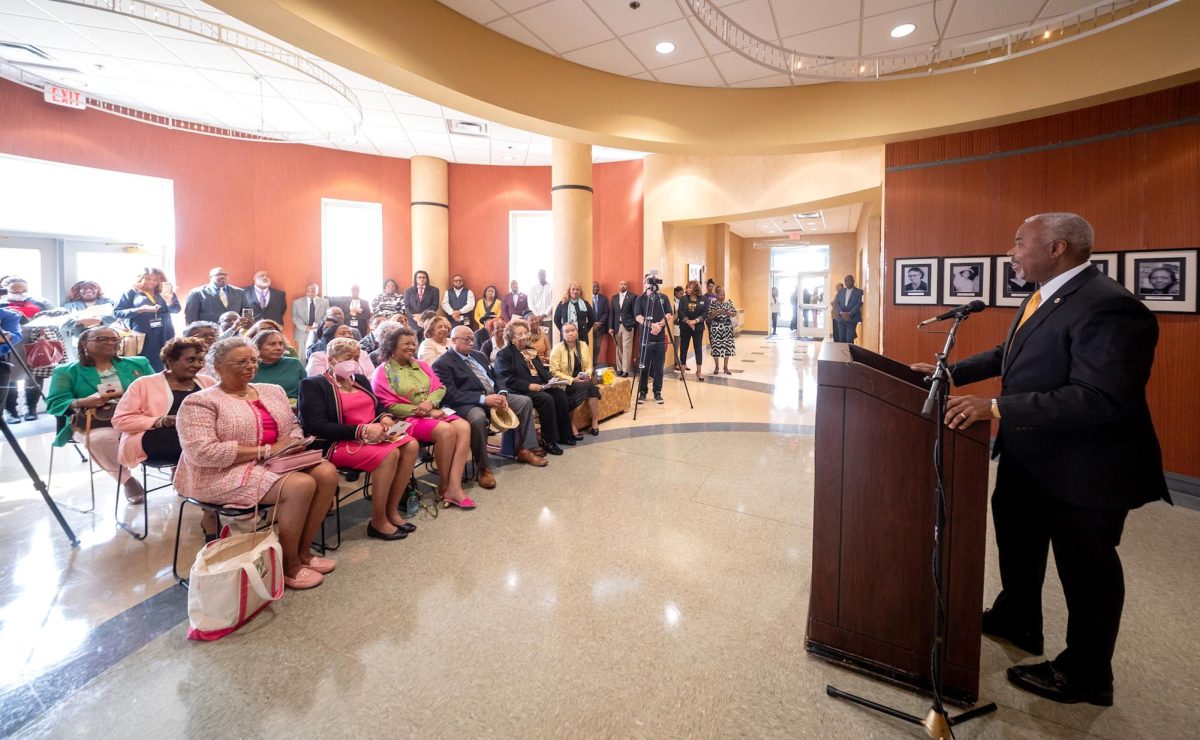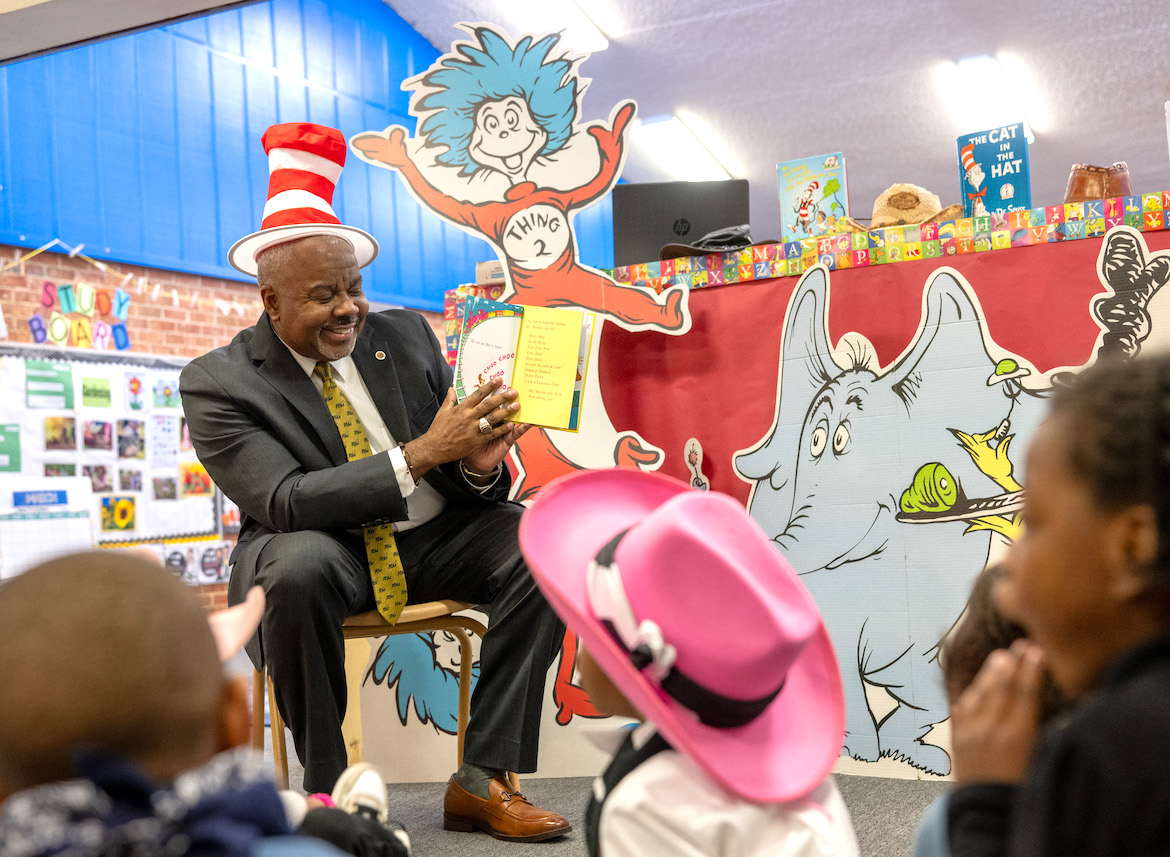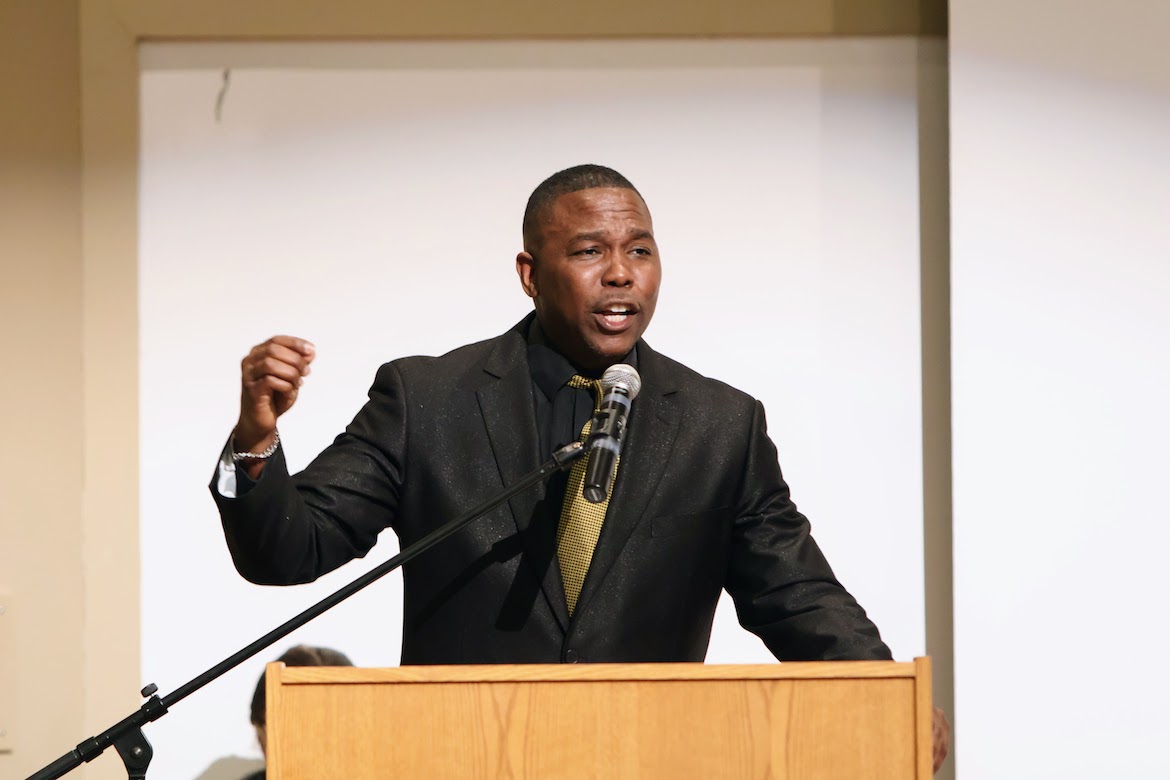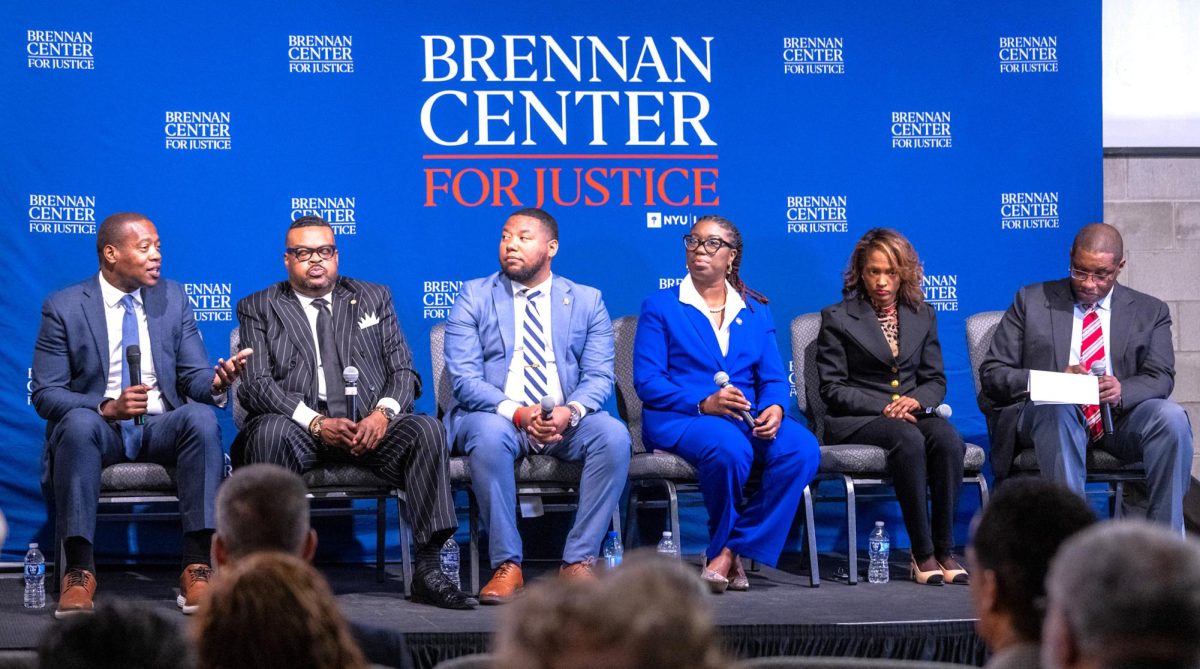Instead of going to school for seven years, students interested in obtaining a legal education can reduce the time to six years. How? Alabama State University and Faulkner University Thomas Goode Jones School of Law have entered into a landmark partnership, creating a new pathway for students to fast-track their legal education.
The two universities signed an articulation agreement Sept. 24, during a joint news conference held in the President’s Conference Room in William Hooper Council Hall. The agreement allows students to earn both a bachelor’s degree and a juris doctorate (J.D.) in just six years, reducing the time it typically takes to complete both degrees, which is usually seven to eight years.
With tuition at the Thomas Goode Jones School of Law costing $39,900 per year, this accelerated program offers students the opportunity to save an entire year for undergraduate studies.
University President Quinton T. Ross Jr., Ed.D., and Faulkner President Mitchell Henry, Ph.D., signed the agreement, highlighting the benefits it will bring to students.
“It is an honor today to stand before you on the cusp of our signing this legal document between our two outstanding institutions of higher education,” Ross said. “Today, we advance ASU’s mission of providing excellence, research and service to develop our students to become global change agents and create within them a positive ‘CommUniversity’ atmosphere, which supports one and all.”
The collaboration provides students with a streamlined route to law school, beginning their studies at the university before transitioning to Thomas Goode Jones School of Law.
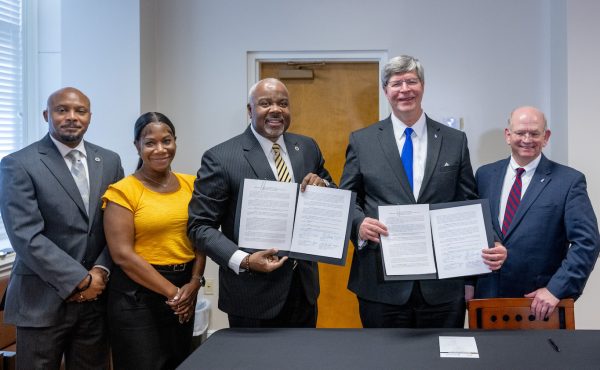
Photo by David Campbell/Alabama State University
For students like Student Government Association Executive Vice President Kameelah Freeman, a senior majoring in computer information systems with a minor in legal studies, the agreement is a game-changer.
“This opportunity makes me really excited,” Freeman said. “I remember when choosing to come to ASU, one of my hesitations was that they didn’t have a pre-law program, and I knew that’s what I wanted to go into. But just hearing and being able to witness this advancement really makes me have hope for future Hornets.”
Vice President of Student Affairs Malinda Swoope Ph.D., praised the partnership as a major step forward for students.
“This is a great partnership between Alabama State University and Faulkner University. Coming from the student affairs side, it’s just an amazing opportunity for our students,” she said, emphasizing the value of providing students with diverse pathways to success. “We have a number of partnerships with other institutions that are similar, but this is the first of its kind for a historically Black college and university (HBCU) and a law school.”
However, the university is not the first HBCU to enter into this kind of agreement. There are several partnerships like this one around the nation.
In 2017, Drake University Law School and the three HBCUs—Lincoln University in Jefferson City, Missouri; Lincoln University in Lincoln University, Pennsylvania; and Kentucky State University in Frankfort, Kentucky, in which selected students are guaranteed scholarships upon admission to Drake University’s law program as part of an ongoing effort to increase diversity among Drake’s student body.
In 2019, Syracuse University College of Law has entered into 3+3 admissions agreements with three HBCUs located at Atlanta University Center: Clark Atlanta University, Morehouse College and Spelman College. The 3+3 program allows students to finish a bachelor’s degree and a J.D. degree in an accelerated format by completing all coursework required for the undergraduate major in three years and finishing their degree during their first year of law school at Syracuse.
In 2023, A partnership between Akron Law School and Central State University is gaining traction with a focus on diversifying the legal field. The new 3+3 degree program aims to create a seamless way for students to obtain a bachelor’s degree from Central State and a J.D. from Akron Law in just six years instead of the usual seven.
Vice President for Institutional Effectiveness, Strategic Initiatives and Transformation, Tanjula Petty Ph.D., emphasized the importance of shared governance in developing the agreement.
“We just wanted to make sure we included shared governance,” Petty said. “That means we brought in all the faculty members, department chairs and the deans of the respective colleges to make sure that we were on one accord and everyone supported the initiative.”
She also highlighted the impact the partnership could have on the university’s students, many of whom come from diverse backgrounds and have personal experiences with legal issues.
“Now, if students don’t want to leave Montgomery or don’t want to leave Alabama, we have a law school right here that they’re able to go to,” Petty added.
Henry described the agreement as “earth-shattering,” noting that the six-year program allows students to jumpstart their careers.
“Three years undergraduate, three years of law school, instead of four years of undergraduate and three years of law school. This allows them to move ahead into the marketplace, start getting those student loans paid off a little quicker,” Henry said. He also emphasized the significance of the partnership, saying, “It’s a wonderful opportunity. I’m so pleased that President Ross reached out to me.”
Henry expressed hope that the agreement would have a broader societal impact, particularly in the legal profession.
“There is such a need for good, purpose-driven, and since we’re a Christian school, I’ll say it, Godly, young people to not just seek law, but to seek justice,” Henry said. He also touted Faulkner’s law school as offering a more intimate, community-focused legal education.
“Even though there are bigger names in law schools,” he added, “you won’t find a school with a bigger heart and cares about their community than Faulkner Law.”


